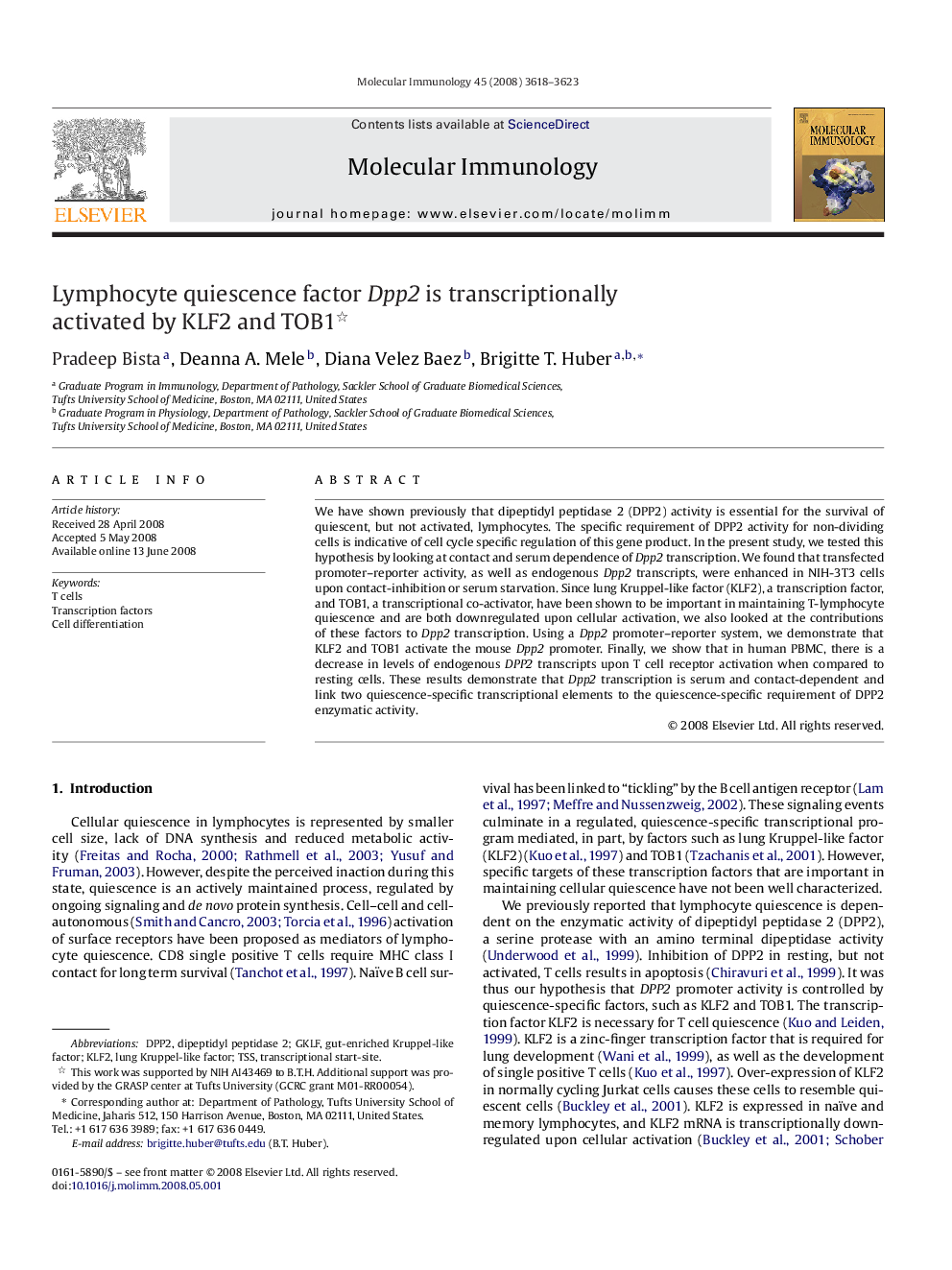| Article ID | Journal | Published Year | Pages | File Type |
|---|---|---|---|---|
| 2831710 | Molecular Immunology | 2008 | 6 Pages |
We have shown previously that dipeptidyl peptidase 2 (DPP2) activity is essential for the survival of quiescent, but not activated, lymphocytes. The specific requirement of DPP2 activity for non-dividing cells is indicative of cell cycle specific regulation of this gene product. In the present study, we tested this hypothesis by looking at contact and serum dependence of Dpp2 transcription. We found that transfected promoter–reporter activity, as well as endogenous Dpp2 transcripts, were enhanced in NIH-3T3 cells upon contact-inhibition or serum starvation. Since lung Kruppel-like factor (KLF2), a transcription factor, and TOB1, a transcriptional co-activator, have been shown to be important in maintaining T-lymphocyte quiescence and are both downregulated upon cellular activation, we also looked at the contributions of these factors to Dpp2 transcription. Using a Dpp2 promoter–reporter system, we demonstrate that KLF2 and TOB1 activate the mouse Dpp2 promoter. Finally, we show that in human PBMC, there is a decrease in levels of endogenous DPP2 transcripts upon T cell receptor activation when compared to resting cells. These results demonstrate that Dpp2 transcription is serum and contact-dependent and link two quiescence-specific transcriptional elements to the quiescence-specific requirement of DPP2 enzymatic activity.
